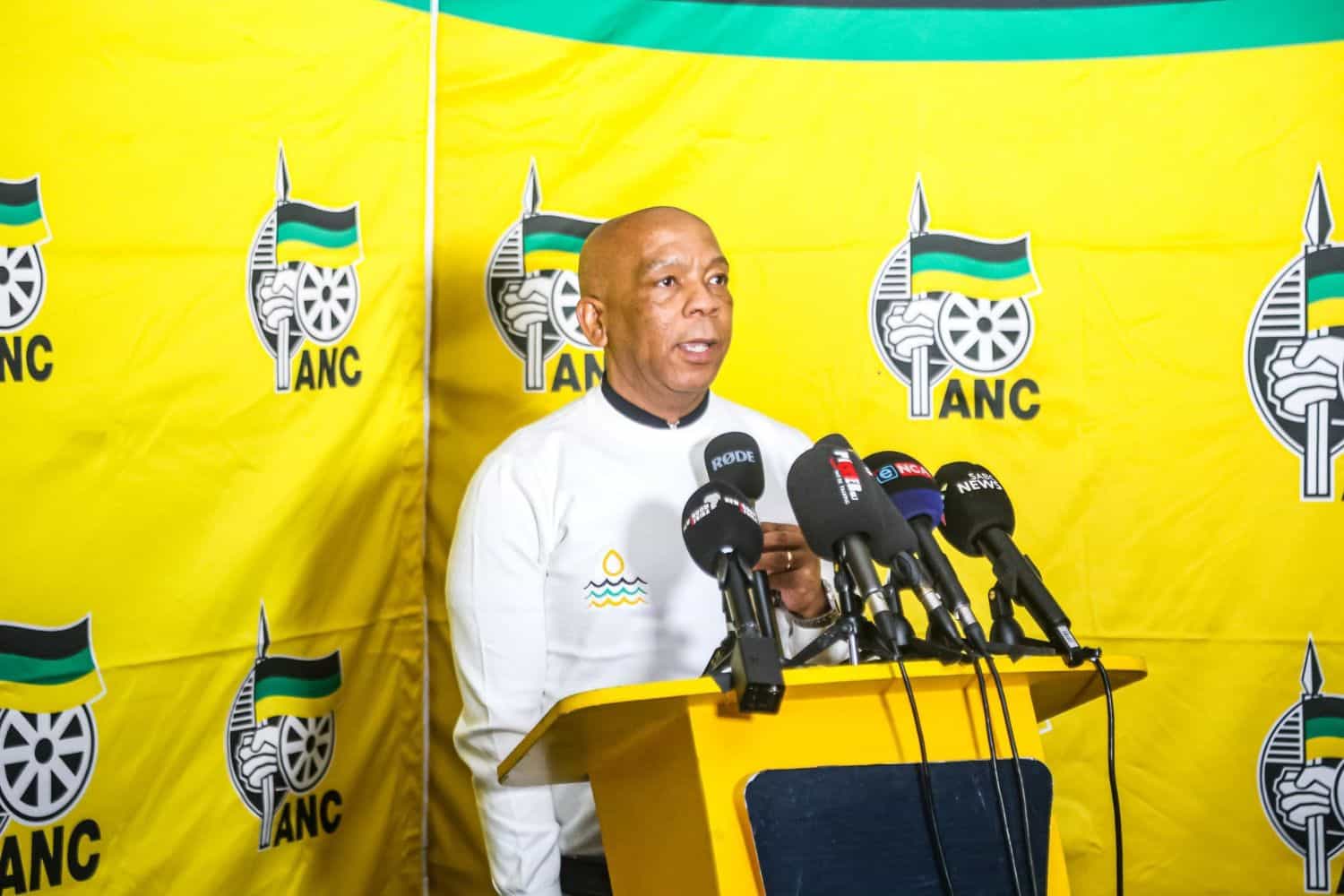Electricity minister said 'South Africa is not being targeted and isolated as a country'.

Electricity and Energy Minister Kgosientsho Ramokgopa has denied allegations that the United States (US) imposed a 30% tariff on South Africa due to its broad-based black economic empowerment (B-BBEE) policy.
The tariffs on South African goods are set to take effect on 7 August, after the South African government did not secure a trade agreement with the US ahead of President Donald Trump’s deadline.
In response, the government is preparing a support package for companies expected to be affected by the 30% tariffs.
Experts have warned that the automotive industry, as well as citrus farmers, will be the hardest hit by the US tariffs.
ANC NEC meeting focuses on economy, US tariffs
On Friday, the ANC’s national executive committee (NEC) commenced its much anticipated four-day meeting at the Lakewood Conference Centre in Ormonde, south of Johannesburg.
The committee last met in February.
Key issues on the agenda include the state of the economy, the functioning of the government of national unity (GNU), and preparations for the 2026 local government elections.
The NEC is also set to receive reports from both the national working committee (NWC) and the integrity commission.
The ANC’s economic transformation committee (ETC) held a media briefing on Saturday to update the public on discussions thus far.
ALSO READ: US tariff of 30%: Rand weakest in 3 months, thousands of jobs in danger
Ramokgopa said there had been a focused discussion on the US tariffs, describing it as “spirited and robust”.
Given that the US remains South Africa’s second-largest trading partner, Ramokgopa stressed the importance of maintaining the relationship.
“It has got huge economic implications to South Africa and the most direct is in relation the number of jobs that potentially could be lost as a result of these tariffs,” the ANC NEC member said.
He said negotiations between South Africa and the US were ongoing, expressing hope that both countries would be able to “find each other”.
Ramokgopa highlighted the tariffs had accelerated South Africa’s efforts to diversify its trade markets.
Watch the briefing below:
ANC defends B-BBEE
Ramokgopa rejected suggestions that the US tariffs were a reaction to domestic policies such as B-BBEE or the Expropriation Act.
“South Africa is not being targeted and isolated as a country; there’s over 90 countries that are subjected to these tariffs and some of them are historic.”
The minister also emphasised that B-BBEE remains a core government policy, though he acknowledged it might require “some degree of tweaking”.
“As is the case with any other policy, there are moments of reflecting on the efficacy of that policy and how we are discharging that policy.
“It remains a central pillar of our request to ensure that we fundamentally alter the economic relations of society.
READ MORE: ‘Is it greed or jealousy?’: Ramaphosa fires back at critics of BEE, Transformation Fund
“It’s a major part of that work, but we do accept that there is a case for us to rethink how it’s going to be implemented going into the future, but we are not about to abandon it.”
Ramokgopa added that B-BBEE has often been misinterpreted, which has led to exploitation.
“It’s important that we are able to distinguish a criminal enterprise that abuses what we mean by black economic empowerment and the honest intentions of how we want to incorporate the participation of local communities.”
Furthermore, he made it clear that economic growth and the implementation of B-BBEE were not mutually exclusive.
“You can achieve both.”
Reserve Bank’s 3% inflation target
Ramokgopa also weighed in on the recent announcement by South African Reserve Bank (Sarb) Governor Lesetja Kganyago regarding a proposed inflation target of 3%.
The proposal, made public on Thursday, drew swift criticism from Finance Minister Enoch Godongwana the following day.
The finance ministry criticised Sarb for making what it described as “unilateral announcements that pre-empt legitimate policy deliberation”.
The ministry clarified that there had been no official change to the inflation target and that such decisions would not be made during the upcoming medium-term budget policy statement (MTBPS).
The Ministry emphasised the need for broad consultation involving the National Treasury, Cabinet, the Reserve Bank and others.
On Saturday, Ramokgopa reiterated that the current inflation targeting policy – within a range of 3% to 6% – remains in place.
“What the Reserve Bank has been doing historically since the introduction of the tariff ban was to pursue a mid-point of 4.5%,” he said.
While acknowledging Kganyago’s suggestion to shift the inflation target ceiling closer to 3%, Ramokgopa said the ANC welcomes the debate.
“I must say we did not have sufficient time to conclude on that because it’s something that has become topical and the ETC never had an opportunity to discuss that in its completeness,” he said.
He confirmed that the NEC has tasked the ETC with conducting a more in-depth discussion and formulating a recommendation.
“The NEC has assigned the ETC to have a much deeper conversation and provide guidance on how best we can respond to these proposals. Ultimately, it will the minister of finance, comrade Enoch, who will make that determination.”
NOW READ: Reserve Bank cuts repo rate despite US Fed decision
Support Local Journalism
Add The Citizen as a Preferred Source on Google and follow us on Google News to see more of our trusted reporting in Google News and Top Stories.








!['I've done nothing wrong... it's a profile issue because I'm Thabo Bester [VIDEO]](https://media.citizen.co.za/wp-content/uploads/2026/02/Thabo-Bester-scaled-1-300x200.jpg)